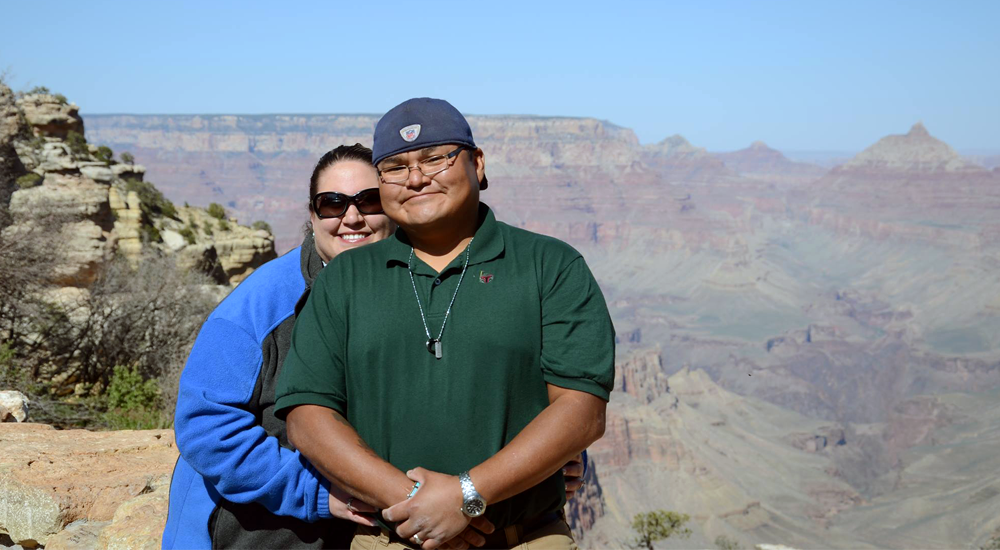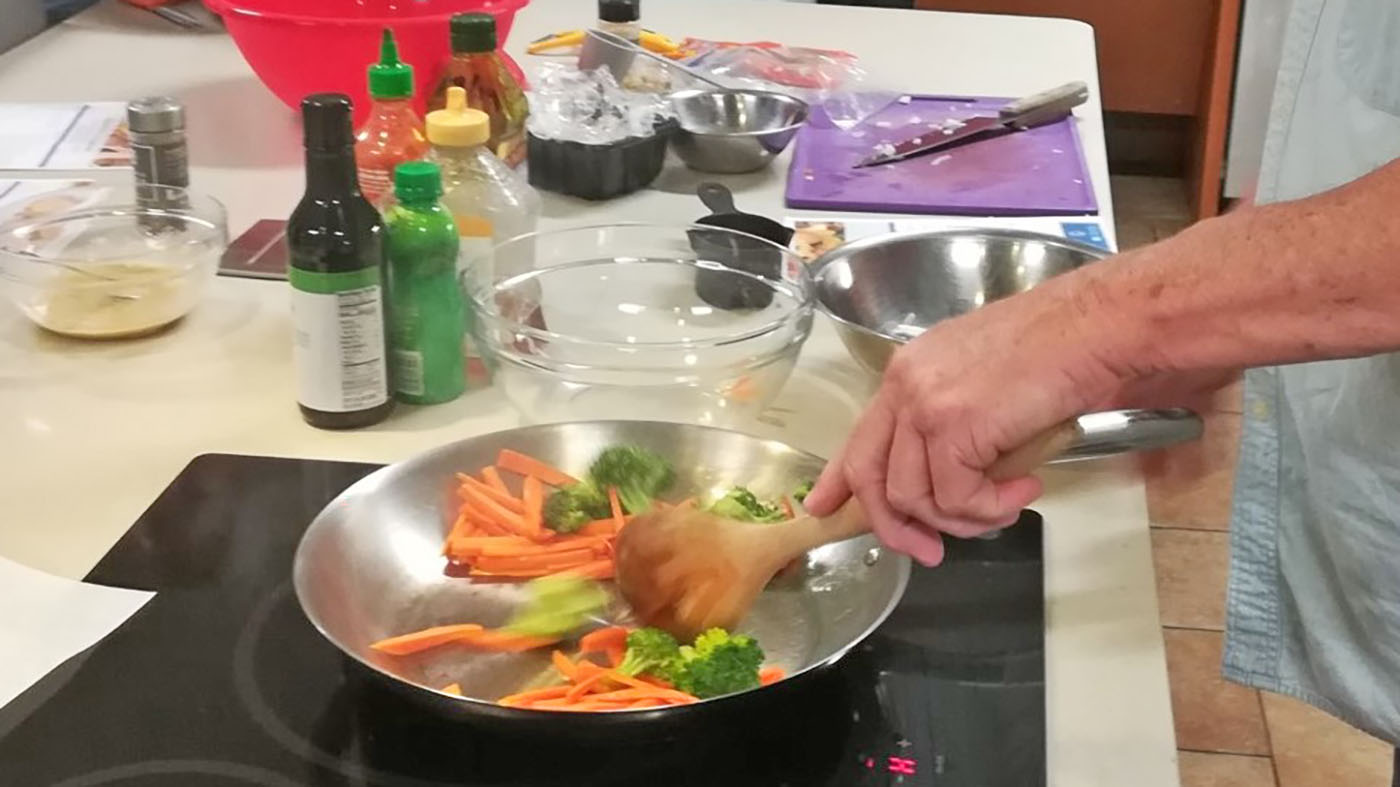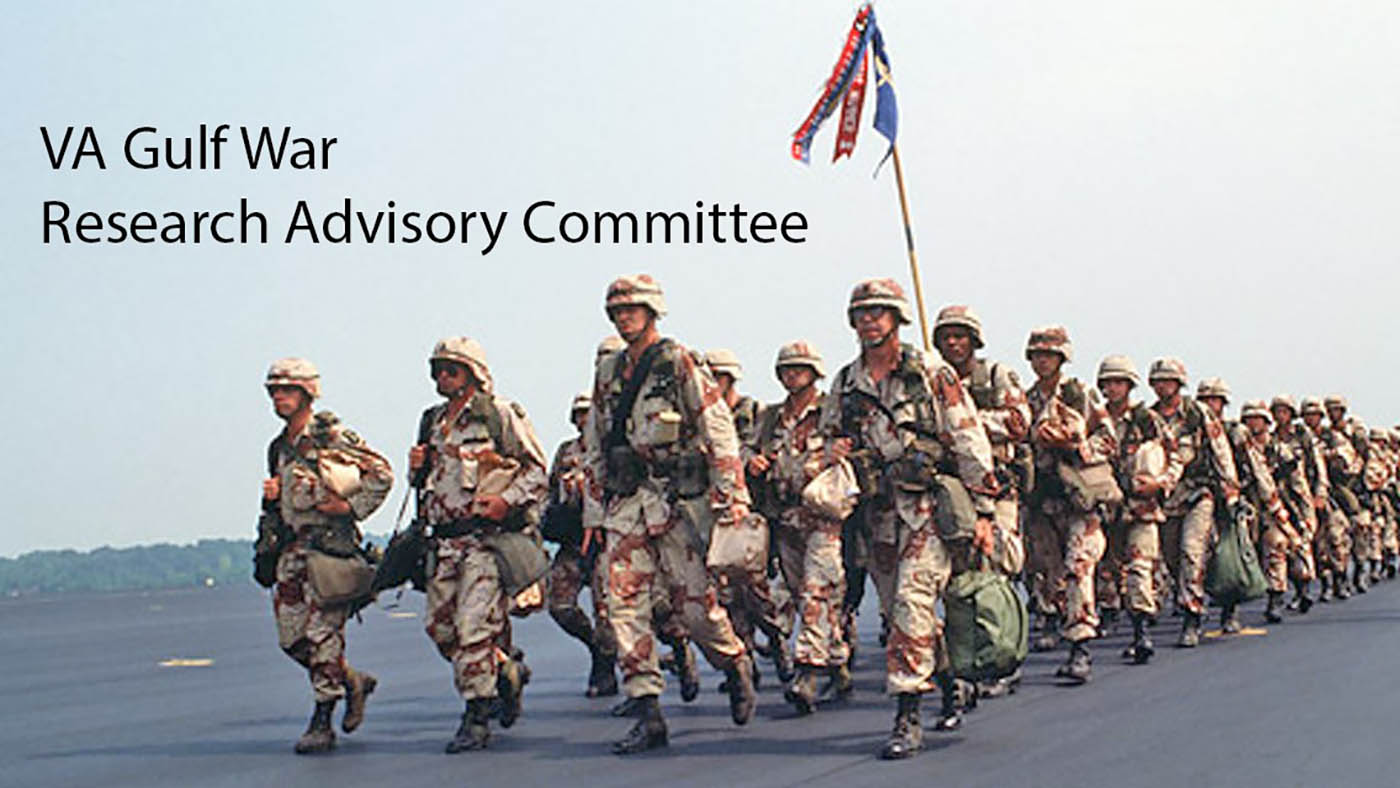When Chani Kaibetoney first met with the doctors, there was absolutely no doubt in her mind that she would be willing to devote her life to be her husband’s caregiver.
Chani and Larry are pictured above at the Grand Canyon.
Her husband Larry was almost killed in a suicide bombing in Mosul, Iraq, in December 2004.
Larry had survived severe, life-threatening wounds caused by shrapnel from an explosive device. Twenty-two others were killed, and a large number were wounded. When Chani met with the Army doctors upon his return to the United States, Larry had severe wounds all over his body, and it was immediately clear to her that Larry would need full-time, around-the-clock care.
“I was willing to do whatever I can to take care of him.”
“He received his purple heart on Jan. 11, 2005,” she recalls. “They gave me the choice to leave him at the hospital or take him home. The doctors told me most people with someone in his condition choose to leave them at the hospital, but there was no way I was going to leave him there.”
“He was my everything, and I was willing to do whatever I can to take care of him,” she said.
She has been with him every step of the way from the time he returned to the United States and went through a series of surgeries and recovery at Madigan in Ft. Lewis, WA. She learned from the doctors and nurses at the Army Medical Center how to pack his wounds.
“The wounds were through and through, you literally could see through his legs in some areas, so they needed to be packed to prevent infection.
He was in constant pain. She learned about how to help take care of his medical needs and was involved in helping him receive occupational therapy.
After his medical retirement from the Army, Larry transitioned to VA care. He has received great health care, Chani says, but was tough on them financially. Though he was receiving 100 percent disability, she had to quit her job in jewelry sales to care for him. During their transition, VA’s Program of Comprehensive Assistance for Family Caregivers was not yet in place.
But she learned how to care for him, to help oversee the provision of his many drug prescriptions for pain, including opioids. He had to use a nerve stimulator, with wires going up the back of his spine, to mask the pain and help him get off of dependence on too much medication.
And just as challenging to her as his physical wounds were the major issues he has had with posttraumatic stress disorder (PTSD).
“He has nightmares frequently. It gets to the point where I have to wake him up and focus him and get him to calm down.” He receives care for PTSD as well as for his health care issues through VA.
Kaibetony combined her experience doing all of those needed functions as his caregiver and now receives a stipend and other services through VA’s Program of Comprehensive Assistance for Family Caregivers which was developed in 2011. She also applies what she has learned in her role to be a Caregiver mentor for others.
“I love helping other caregivers work through any issues that they may have. I have conducted local seminars about caregiving and PTSD. It is important to me to open up a line of communication with the family and friends who are caregivers to loved ones, especially those with PTSD. I want to get rid of the stigma surrounding PTSD and bring awareness to the issues that are faced by caregivers of Veterans.
“Caregivers wear so many hats. I am his wife, his nurse, his caregiver and handle administrative things for him.”
She advises caregivers of the need to take care of themselves. “I tell other caregivers what does and doesn’t work based on my experience,” she said. “Caregivers are more receptive to receive information from other Caregivers.
“I tell them to learn how to be an advocate, don’t be afraid to speak up, pick your battles with doctors and with your spouse. Understand others are there to help. Do your research. And take time for yourself.”
She lives with Larry in the beautiful mountains East of Albuquerque, New Mexico, with their dogs, goats, llamas, and chickens. They enjoy taking part in hobbies and activities such as hot air ballooning. They watch movies and television together, and she says they enjoy being homebodies and watching over their animals. “We love the peace and quiet out here, even with our little zoo!”
She is now supplementing her income through direct sales of jewelry online. But being a Caregiver will always be her first and most important job.
“I tell caregivers that you’re in a very important position, be proud of how you do this,” she said. “Know that you are not alone and don’t be afraid to reach out as there is help available.
“There’s lots of weight that is on you as a caregiver, but it’s worth it.”
November is National Family Caregivers Month
 Bill Outlaw, Communications Program Specialist (and Vietnam Veteran and former reporter), Office of Patient Care Services, Veterans Health Administration
Bill Outlaw, Communications Program Specialist (and Vietnam Veteran and former reporter), Office of Patient Care Services, Veterans Health Administration
Topics in this story
More Stories
VA promotes early nutrition intervention for chronic kidney disease with targeted programs like Heathier Kidneys Through Your Kitchen.
VA Research Advisory Committee on Gulf War Veterans’ Illnesses hosting Veteran Engagement Sessions in Phoenix for 1990-91 Gulf War Veterans.
Navy Veteran and president of the American Medical Association got a colonoscopy and encourages other Veterans to do the same.








What Paula says up there ⬆️! Those Caregiver Benefits are for a VERY VERY VERY LIMITED NUMBER of families! Spouses and Adult-Children have been caring for their Veterans for centuries and NOW you come up with help for some of them, but not ALL? SHAME ON YOU VA!
Caregiver Benefits FOR ALL VETERAN’S & Caregivers in need!
Sad to say, unless you are a war veteran…. there is not help for those caring for a service-connected member. And it’s a tough job, but now those non-war veterans are not included for any help. Those wives are unknown ,and have little help. So sad we divided by war , but wounds and health issues are all the same!
It’s unfortunate that some veterans choose to not seek care from the VA. My late husband was a fine example of such.
Within the first month of our marriage, per his older brother’s insistence and encouragement, he had several procedures done, to include an endoscopy, done to determine the etiology of the hoarseness of his voice and his change of appetite. Not only was it discovered that he had occlusion of the right carotid artery, he also had blockage within his vertebral artery, an abdominal aortic aneurysm and a suspicious mass on his right true vocal chord.
The afternoon he was coming out of surgery with the otolaryngologist (the official term for an ears, nose, throat (ENT) specialist) is one I will not soon forget. The doctor walked up to me and said flatly, “Your husband has cancer” and walked away from me. As I walked, almost ran, behind him, I asked who was going to break the news. The one second too long delay said enough and I told him, “I’ll take care of it!”. Not exactly what I expected to be doing as a 31 year old wife within the “honeymoon phase” of our marriage. So, as he was getting his bearings, Steve asked me what the results of the surgery were. I took a deep breath and told him he had cancer. Tears welled up in his eyes and he turned his head away from me. My heart broke for him even though I tried to be as unemotional as possible because I knew he was looking for me to be the strong one.
From that day forward, I went with him to his radiation therapy appointments, I stayed in the waiting room and camped out in his hospital rooms as he was in recovery for his carotid artery and aneurysm surgeries. And just as he seemed to be getting better, he started to have weakness all over again. Doctor after doctor (4 total) could not tell him why this was happening. Yet, I insisted that he have an MRI done of his brain and neck, since the vertebral artery was not addressed after its initial assessment. The very last neurologist, who was about to say the same as the others, finally heeded my suggestion of looking at the imagery of his scans. She left the room and within 5 minutes came back and her face was as white as snow. She looked at us and said with a trembling voice that was his brain that was causing Steve’s weakness, lack of appetite, sleep disruptions, mood swings, bladder/bowel incontinence and dizziness, and there was nothing that could be done to make the situation any better. That section of the brain was practically dead.
Despite his having home health aides come out periodically to check on him, and their level of care was worse than worse at its very best (no-shows for their appointment times, verbally/emotionally abusive behaviors), I was still at his side as his sole caregiver. The very few people who knew of how dire the situation was second-guessed us and how I was caring for him. “Ideas” which were thinly disguised reprimands were thrown in our faces. “Why isn’t he in a hospital?” – He never wanted to be in a hospital, “Just force him to eat. He doesn’t know what’s good for him anymore” – Steve knew damned well what he wanted and it wasn’t food. He wanted to go, on his own terms.
Although life can bring a lot of perspective to things as we look back in hindsight, it can make things hard to focus on as we are going through the situation at hand. Looking back, I can see how Steve was slowly drinking himself to death. And why not? He was a former fighter pilot and a Barstooler to boot. This was the most honorable way for him to go aside from being a “smoking hole in the ground”.
It was on the morning of October 29, 2013, I woke to the silence of my dragon’s long-deserved departure. Major Steven Alan Porter (USAF(RET)) “flew away” in the middle of the night.
Looking back, I wish I could have insisted on Steve seeking care from the VA. If anything, I would like to think he would have had better quality of care from the strangers who we entrusted with the needs I was incapable of addressing. Additionally, I would like to think as his sole caregiver, I could have received the much needed support so I could give him happier memories to reflect upon when our days seemed so bleak.
Just my thoughts …
All my love, Jenni Marie <3
You should address the Caregiver Program in a more honest way Few receive the benefits for a physically wounded veterans
90% receive the stipend to deal with PTSD and or substance abuse
And of course Caregiver such as myself? We’ve provided care to 100% physically wounded for 40+ years and were deemed NOT IN NEED of these assistance.
Tell the truth, P!EASE